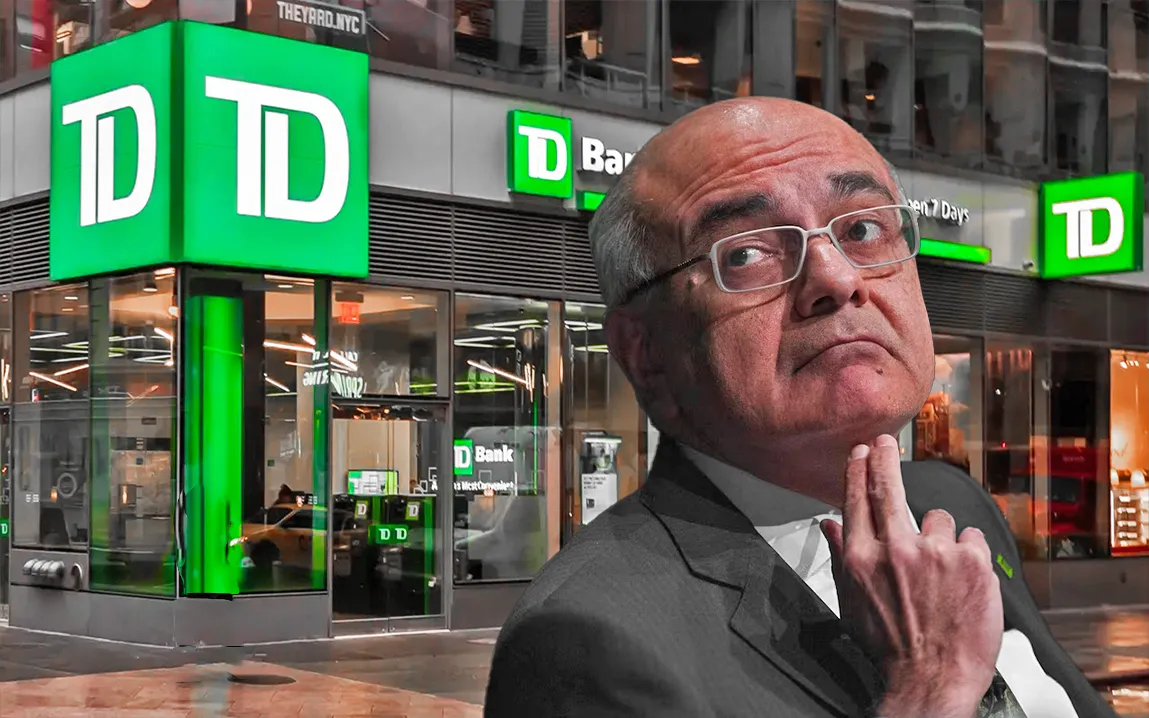TD Bank’s Guilty Plea and Record Fine
In a similar case, TD Bank has recently admitted to and been charged for its noncompliance with AML laws in United States jurisdiction. This has led to huge penalties and substantial limitations on activities.
The Canadian financial institution was charged $3 billion in penalties, the largest fine ever in the BSA in the United States. These charges include failure to verify transactions that facilitated over $670m related to criminal conduct through the identified bank between 2014 and 2023.
Compliance Failures and Business Restrictions
Court documents reveal that TD Bank repeatedly failed to enhance its anti-money laundering systems, despite receiving numerous internal and federal warnings. This negligence rendered the bank a prime target for money laundering networks.
The institution permitted trillions of dollars in unmonitored transactions, including those associated with high-risk countries and suspicious activities like peer-to-peer transfers. Investigators found that employees were aware of these compliance shortcomings but opted to prioritize profit over regulatory adherence.
One key issue was TD Bank’s “flat cost paradigm,” which limited the compliance budget and hampered the allocation of adequate resources necessary for essential AML improvements. The bank’s deficiencies in monitoring automated clearinghouse (ACH) transactions and check activities, along with various other lapses, enabled illegal activities to go unnoticed.
The U.S. Department of Justice took decisive action in response to these violations, with Attorney General Merrick Garland stating, “TD Bank became the largest bank in U.S. history to plead guilty to Bank Secrecy Act program failures, and the first U.S. bank to plead guilty to conspiracy to commit money laundering.” This settlement also imposes significant restrictions on TD Bank’s U.S. operations, including a cap on its assets and stringent oversight of future transactions.
Impact and Broader Lessons for the Banking Sector
The resolution of this case sends a powerful message to the banking industry regarding the critical importance of compliance. Deputy Attorney General Lisa Monaco emphasized, “This historic guilty plea, including the largest penalty ever imposed under the Bank Secrecy Act, offers an unmistakable lesson: crime doesn’t pay—and neither does flouting compliance.”
The case of TD Bank shows that there is no tolerance for doing business without compliance with federal AML standards. The financial institutions feel more pressure to be more loyal to the customers and more committed to the preservation of the truth than being highly loyal to the dollar. The settlement, however, undermines TD Bank’s reputation but also operational constraints, which will take its toll on its business in the United States for the coming years.
What’s Next for TD Bank?
While the financial penalties are substantial, the long-term implications for TD Bank could be even more severe. The business restrictions and compliance requirements resulting from the settlement necessitate a complete overhaul of its AML program, requiring significant investment in transaction monitoring and employee training. Additionally, the bank’s leadership is under scrutiny, and individual executives involved in the violations may face further legal actions.
The TD Bank case serves as a cautionary tale for other financial institutions regarding the risks associated with neglecting compliance programs. It highlights the necessity for banks to take their role as financial gatekeepers seriously, ensuring they do not facilitate criminal activities. Ongoing investigations by the Justice Department into TD Bank suggest that more individuals and potentially additional penalties could emerge in the future.
Conclusion
TD Bank’s admitting to guilty of charges in the US over money laundering failures Is a defining moment in banking. Overall it demonstrates the importance of compliance newest record $3 billion fine and business restrictions and penalties for failure to meet legal requirements. To get to the recovery level, TD Bank will be required to devise drastic measures for change throughout its operation, especially in the American market. This case therefore a sharp reminder of the fact that financial institutions have no option but to ensure compliance in order to protect their clients and the Financial System.




